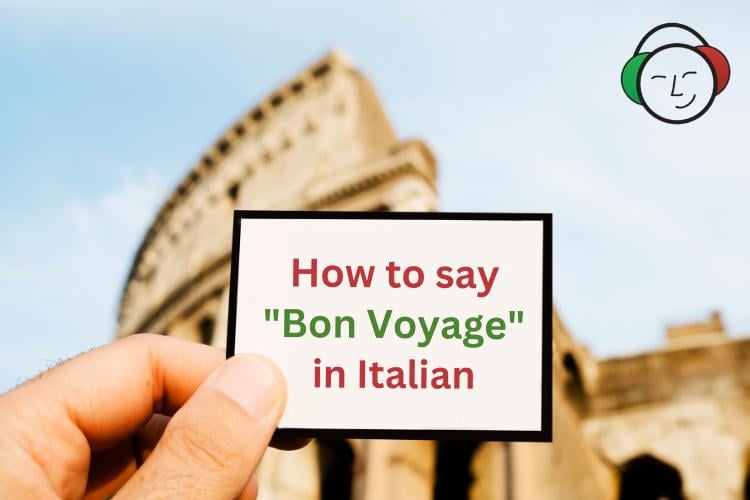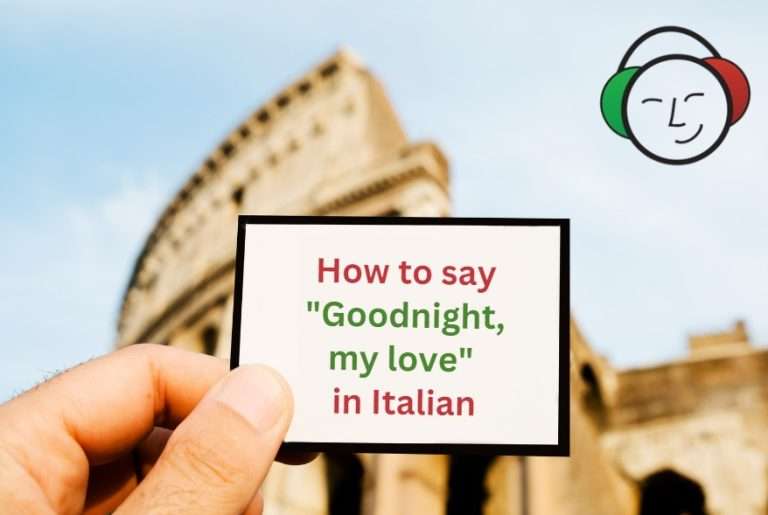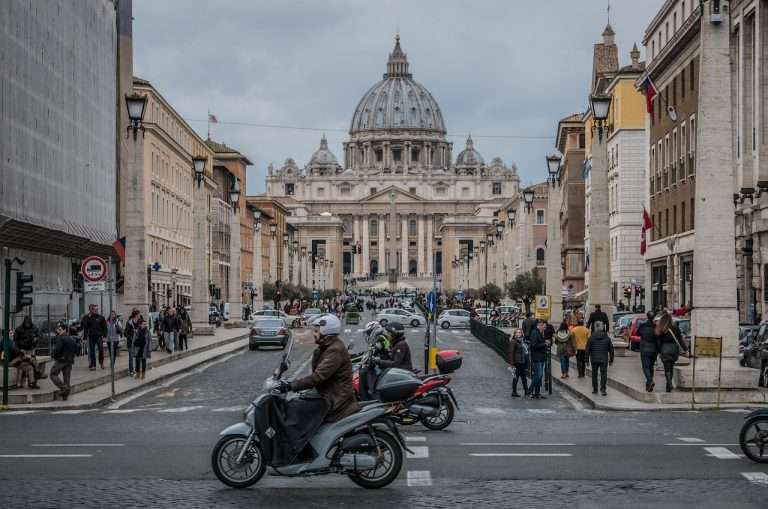How to Say Bon Voyage in Italian: A Buon Viaggio Guide
Looking to learn how to say Bon Voyage in Italian? The short answer is: ‘Buon Viaggio.’ This quick guide explores the language nuances of ‘Buon Viaggio,’ offering straightforward tips on how to express this warm Italian farewell.
Keep reading to learn how to say goodbye in style, perfect for adding a touch of Italy to your well-wishes.
What’s Italian for Bon Voyage?

The phrase ‘Bon Voyage’ directly translates to ‘Buon Viaggio’ in Italian. Often used to wish someone a good trip, it’s a common expression that will come in handy whether you’re waving a friend off on their Italian holiday.
Hear the correct pronunciation of ‘Buon Viaggio’ below. ‘Buon’ translates to ‘good’ in English, and ‘Viaggio’ means journey or voyage.
Now, an example using ‘Buon Viaggio’ to say ‘Bon Voyage’:
| Italian | English Translation |
|---|---|
| A: Questo fine settimana parto per un viaggio a Parigi. | A: This weekend, I’m leaving for a trip to Paris. |
| B: Che bello! Buon viaggio e buon divertimento! | B: How wonderful! Have a good trip, and enjoy yourself! |
The phrase ‘Buon Viaggio,’ which translates as ‘have a good trip’ or ‘have a good journey,’ is highly common in social situations and is perfect if you’re saying goodbye to someone setting off on an adventure to Italy.
Other Ways to Say Bon Voyage in Italian

In Italian, you can express wishes for a good trip by utilizing the imperative form of the verb ‘fare,’ which translates to ‘make’ or ‘do,’ and in this context, it also implies ‘have.’
When addressing someone close to you, use ‘Fai buon viaggio!‘ This translates to ‘Have a good trip!’ or ‘Have a good journey!’ and is used in informal one-on-one conversations.
For more formal situations, with someone you’re unfamiliar with, an elder, or a person of higher status, say, ‘Faccia buon viaggio!‘
When speaking to a group, the phrase changes to ‘Fate buon viaggio!‘ This version also conveys the wish for a good trip in a group.
Wishes for a Great Trip in Italian

Apart from ‘Buon Viaggio,’ you can also wish a great trip to someone by saying, ‘Fai un bel viaggio e torna presto!’ (Have a nice trip and come back soon!), another way of bidding farewell.
If you are in a more familiar setting, you can say ‘Divertiti,’ meaning ‘Have Fun.’
Using ‘Buon’ in Various Context
In the context of saying ‘Bon Voyage’ in Italian, the word ‘Buon’ plays a vital role. Besides its use in ‘Buon Viaggio,’ this word is a cornerstone in Italian phrases expressing well-being and good wishes.
‘Buon’ commonly precedes phrases like ‘Buon Appetito’ for ‘Enjoy Your Meal’ and ‘Buonanotte’ for ‘Good Night,’ highlighting its versatility in conveying positive sentiments.
Suggested Read: How to Say ‘Goodnight My Love’ in Italian
Here is a selection of phrases illustrating the versatile use of ‘Buon’ in Italian expressions:
| Italian | English Translation |
|---|---|
| Buon compleanno | Happy birthday |
| Buon appetito | Enjoy your meal, Enjoy your food |
| Buon lavoro | Have a good work |
| Buon divertimento | Have fun |
| Buon riposo | Rest well |
| Buona fortuna | Good luck |
| Buona lettura | Enjoy your reading |
| Buon ascolto | Enjoy listening |
| Buone ferie | Have a good holiday |
| Buona Festa della Mamma | Happy Mother’s Day |
| Buona Festa del Papá | Happy Father’s Day |
| Buona giornata | Have a good day |
| Buona vacanza | Have a good vacation |
| Buone feste | Happy holidays |
Listen to the examples in Italian from the table above. The audio is intentionally slowed to aid in practicing and mastering Italian pronunciation.
Formal and Informal Farewells in Italian
As in English, Italian farewells come in formal and informal formats. ‘Buon Viaggio’ is considered mildly formal but can be used regardless of the relationship.
For a more casual expression, one might use ‘Buona fortuna,’ which translates to ‘Good Luck.’
Suggested Read: 25 Ways to Say Good Luck in Italian
Expressions for Well-Being and Good Wishes in Italian
Expressing good wishes in Italian doesn’t stop at ‘Buon Viaggio’ (‘Bon Voyage’ in Italian). Common phrases include ‘Buona fortuna‘ for ‘Good Luck’ (mentioned earlier) and ‘Buon divertimento‘ for ‘Have Fun.’
Remember that it’s also culturally appropriate to wish someone ‘Buon Appetito’ before a meal.
Suggested Read: How to Say Eat in Italian: Your Guide to Mangiare
Farewells for Different Relationships in Italian
Many Italian phrases fit various relationship contexts, from close friends to formal environments. ‘Arrivederci‘ is another formal phrase commonly used to bid someone farewell.
For close friends, it is common to say ‘Ciao,’ a universal phrase denoting both hello and goodbye. Learning to say hello in Italian is beneficial in many ways.
Before You Go…
Ready to enrich your Italian travel experience even further? Dive into 135 Basic Italian Phrases for Travel. Complete with a PDF Cheat Sheet, it’s the essential tool to navigate conversations seamlessly while exploring Italy.







